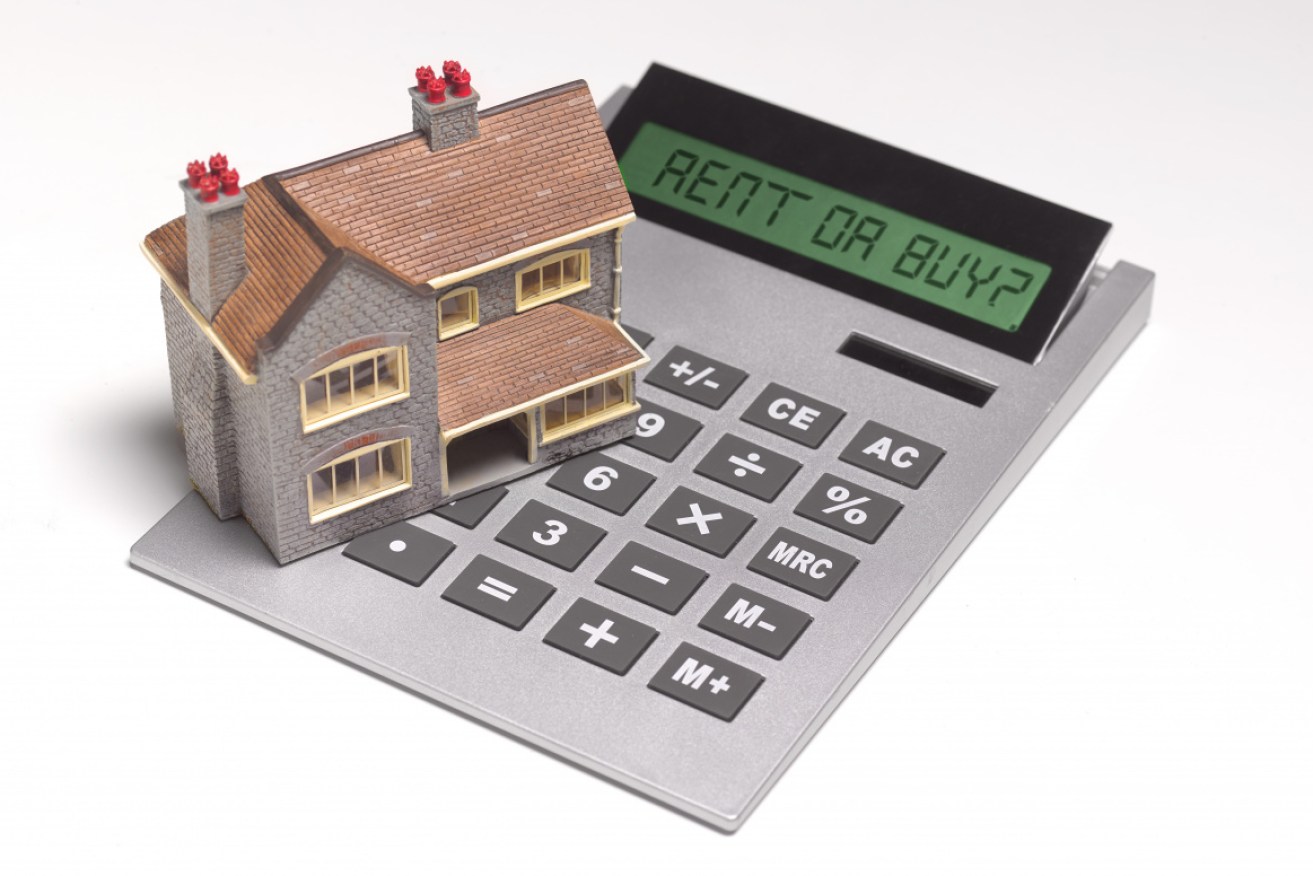Rent v buy: The debate is more complicated than ever in a pandemic


To rent or buy? It's a question that's become even more complex in the middle of a pandemic. Photo: Getty
To buy a forever home or rent indefinitely?
Even in rosier times, it’s a vexed question.
With house prices soaring and wages stagnating well before ‘coronavirus’ entered our vocabularies, renting seemed the only option for many.
But for workers who have maintained job and income security amid the pandemic, the temptation to buy may be at its zenith.
An array of grants – including HomeBuilder and a second tranche of the First Home Buyer Deposit Scheme – means first-home buyers could save well above $25,000, depending on where they choose to buy.
And with prices across the country sliding for a second straight month, those factors could encourage some buyers to jump into the market, Curtin University senior property lecturer Dr J-Han Ho said.
Tweet from @CroweDM
Dr Ho told The New Daily that buyers with stable jobs are in the box seat.
But he cautioned they should only make a purchase if it aligns with their long-term outlooks – including future job prospects, family plans and other lifestyle needs.
“On the flip side, if someone less informed is thinking of purchasing to access government grants and maximise the subsidies, that would be a very bad decision,” Dr Ho said.
“Depending on the location and price range of what you’re getting and depending on what you can forecast for what you will need in your life, if you know all that, you’re in a much better position to say yes or no.”
Think again before rushing to secure home buyer grants
An ING report released this week revealed 46 per cent of millennial home buyers believe the COVID-19 pandemic has made the ‘Great Australian Dream’ of home ownership more achievable.
But 50 per cent said they would have to take their search to the urban fringe (more than 45 kilometres from capital city CBDs) to find something they could afford.
And three in five millennials said they would only buy with their partner.
Tweet from @MurrayWatt
Data from realestate.com.au (REA Group) suggests the HomeBuilder grants may have boosted housing demand.
The real estate listings site experienced a 93 per cent lift in land estate enquiries over June, with the group attributing the surge to the announcement of HomeBuilder.
Although grants could provide thousands of dollars in savings, Dr Ho said buyers should look beyond the short-term gains before signing on the dotted line.
“Everybody will have a different perceived value for their home based on the amenities available and the location, which is what makes this debate very, very difficult,” Dr Ho said.
“For example, a couple getting their child into a good school could have a long-term value of $100,000, so if they are paying an extra $50,000 to live closer to their chosen school, $50,000 seems like great value.
“But for someone who chooses not to have kids, that motivation to pay that premium doesn’t exist.”
Australians could be better off renting long-term: EY
Economists from big four accounting firm EY attempted to dispel age-old myths around renting versus buying last year.
They found owning a home may not necessarily be the best way to “get ahead”.
In fact, their modelling of two different home seekers in Sydney’s high-demand rental suburbs found that, in more than 60 per cent of cases, renters would be financially better off over a 10-year period.
Using the same deposit, one purchased a home with an 80 per cent LVR mortgage, while the other rented a similar dwelling in the same location and invested the leftover money in a leveraged ASX 200 index fund.
EY found tenants in upmarket areas could save up to $500,000.
In cheaper suburbs, $200,000 to $300,000 savings are commonplace.
“With today’s property prices, you could be better off renting somewhere affordable and investing the cash you’ve saved,” EY chief economist Jo Masters said in April 2019.
However, the firm noted that tenancy law changes would be required to make long-term rentals more attractive, including tenants’ rights similar to those seen in Germany and New York City.
Figures compiled by The New Daily also show renters in Melbourne and Sydney could save upwards of $1000 per month over home owners.
But that gap shrinks significantly outside the two major markets.
In Perth, Hobart and Darwin, tenants on average spend more on monthly rent than home owners spend on mortgage repayments.
Is there a clear answer on the rent v buy debate?
Dr Ho has devised a formula based on basic income returns to determine whether buying or renting is the better option in a particular area.
If the likelihood of house prices increasing by 2 per cent per year for the next decade is high, the scale tips in the favour of buying, he said.
Tweet from @shalailah
However, if that long-term outlook is bearish and does not meet that 2 per cent growth threshold, there’s a stronger argument for renting.
Taking into account current government grants, that threshold could drop to 1.7 per cent or 1.8 per cent per annum, as home owners require less money to settle.
Dr Ho noted, however, that his formula is complicated by predictions that house prices will fall by double digits within a matter of years as a direct result of the coronavirus.
But there’s still a way to safeguard a purchase, he said.
“If anyone is thinking about jumping into home ownership, they should spend more time understanding the markets because more people buy a house on a whim than they would buy shares,” Dr Ho said.
“Right now, house prices are like a falling knife.
“But if you bought a home which fits your lifestyle and your family and with a big enough discount, you’re essentially grabbing the knife with armour on your hands.”









